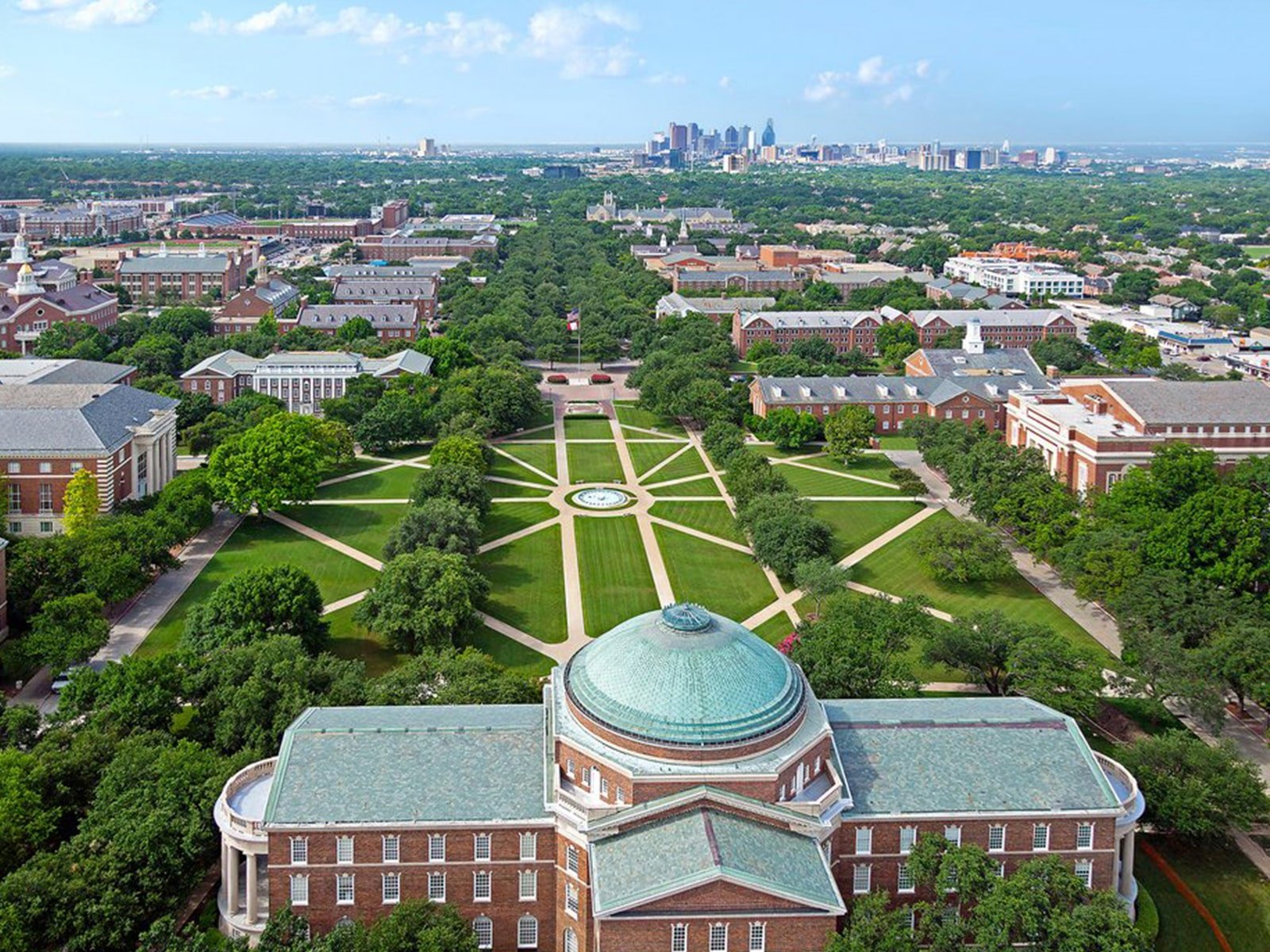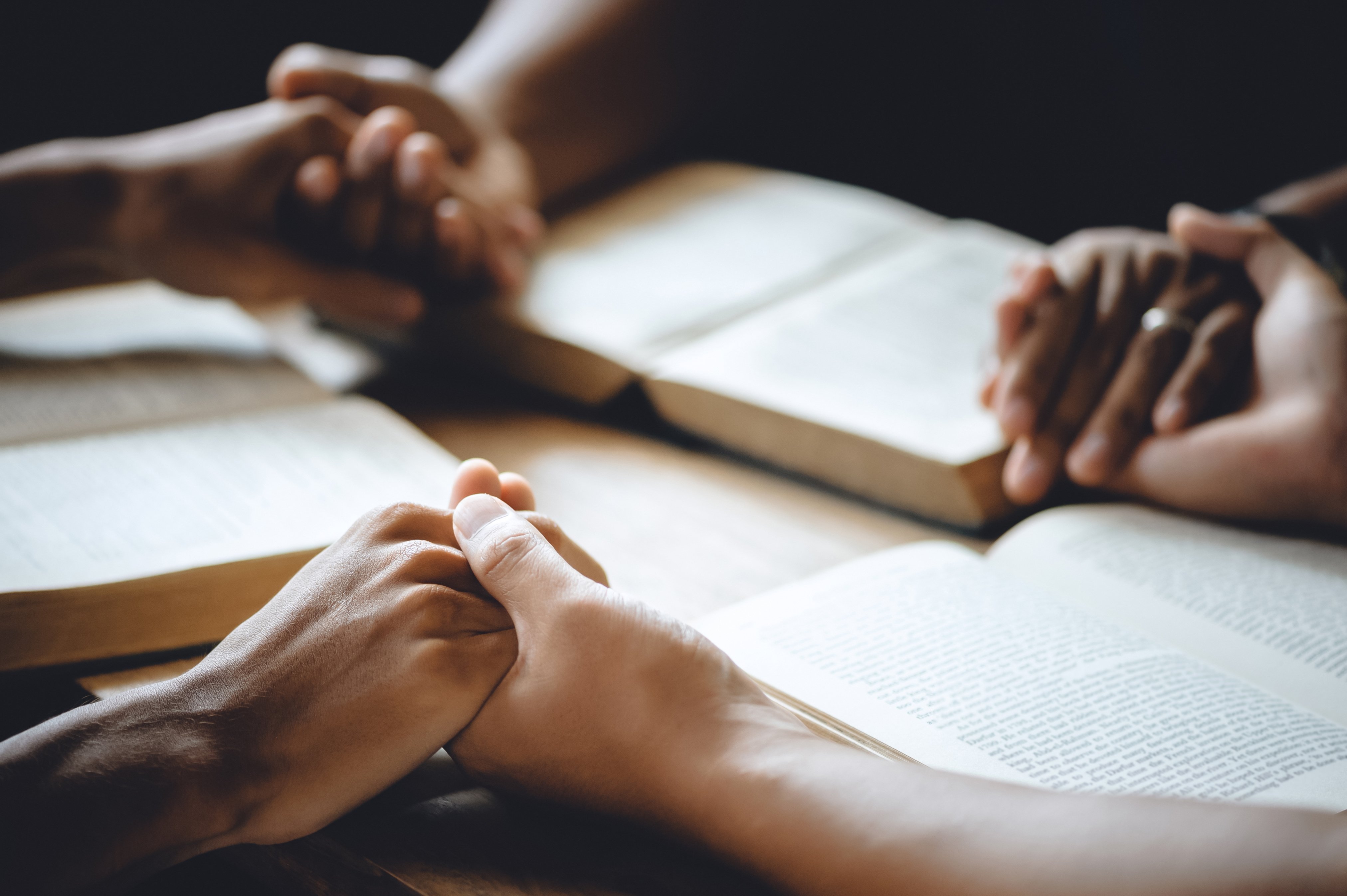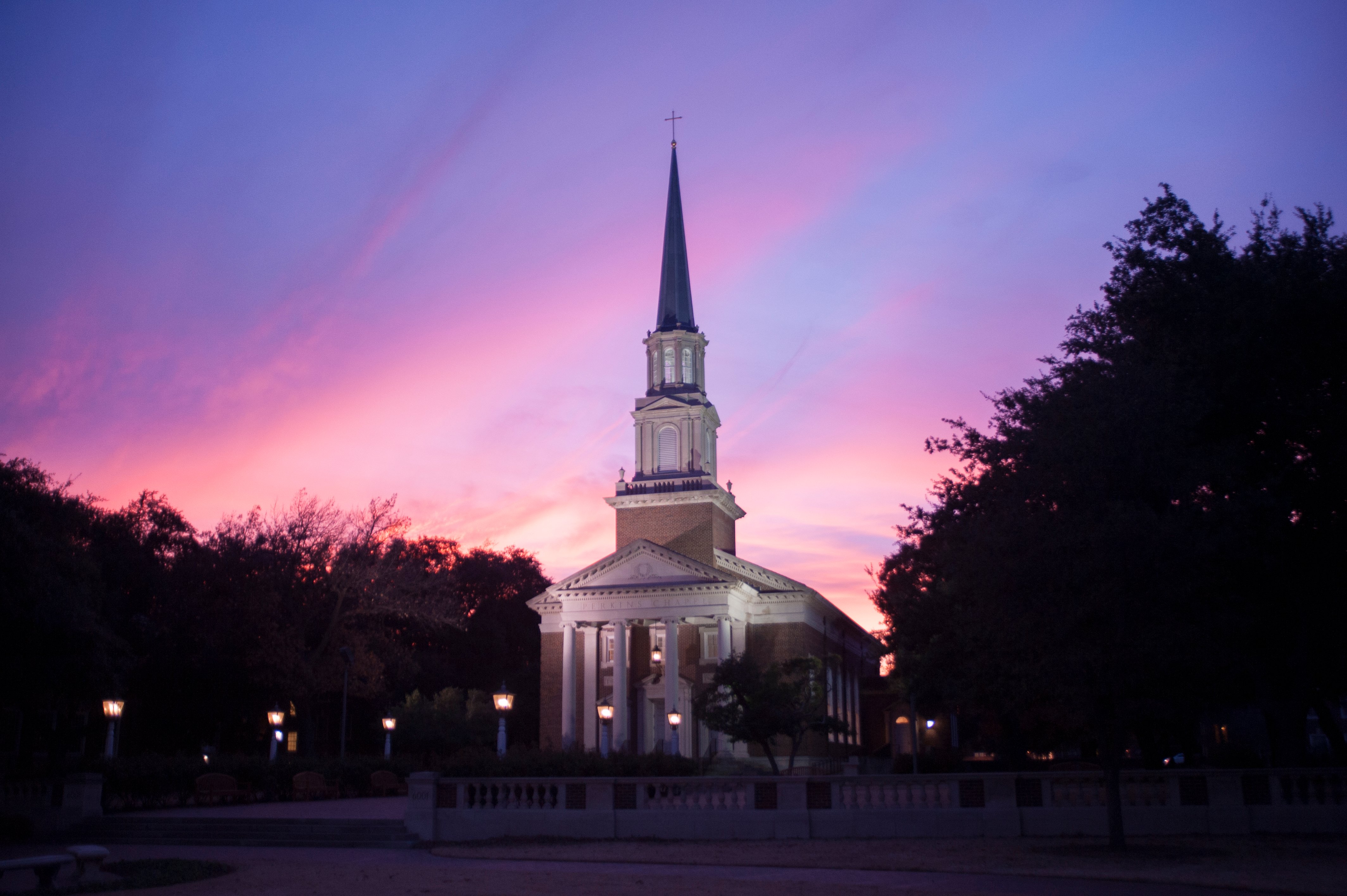Three Perkins students presented their perspectives in a wide-ranging panel discussion, “Encountering World Religions at a Christian Seminary,” held December 1, 2021, on the Perkins campus.
Tamara Bayo, Jonathan Colley and Elmer Doty were students during the spring term of 2021 in the course on Interfaith Studies, Comparative Theology, and Christian Ministry, which included a study of world religions and how to dialogue with people of other faith traditions. They wrote papers which were originally presented virtually at the 2021 Parliament of the World’s Religions international conference in October.
Their writings tackled questions such as “How can interfaith studies transform theological education?”, “What are the theological grounds for interfaith dialogue and cooperation?” and “What can Christians learn from other faith traditions?” Ruben L.F. Habito, Professor of World Religions and Spirituality, moderated the panel.
“The panel discussion went so well that I invited the three students to present the papers again to this semester’s Interfaith Studies class and opened the event to the public,” Habito said. “The students in this class had very pointed and thought provoking questions, and engaged with the panelists in lively discussions.”
All of our programs are offered in-person. We also offer two ministry degrees in our hybrid program; the Master of Divinity (M.Div.) and the Master of Arts in Ministry (M.A.M.). Continue reading to learn more about the differences in our program’s modality options.
What Were the Student’s Presentations?
Read a summary of the student’s presentations below.
Tamara Bayo
Tamara Bayo, a Catholic layperson, described her experiences after she was diagnosed with cancer at the age of 44. “Chemo, radiation and surgery became the constants in my life,” she said. “Critical illness is terribly lonely. I was quietly lying in a bed confronting my mortality. In those moments, I experienced a sense of peace like no other.”
Tamara reminisced about the room at the doctor’s office where she received her chemo treatment became her home and the nurses became her community.
“I felt unconditional love for those in the midst of terrible suffering,” she said. “It was a community I never wanted to leave. Every culture and religion was represented, yet nothing divided us because we were rooted in love. We were connected by something we simply could not explain.”
Bayo said that she chose a Methodist seminary because of the diversity of the program. She wanted the opportunity to study the world’s religions in a non-judgmental environment that showed profound respect for all expressions of spirituality and all believers.
“Knowledge, authenticity, respect, love – I believe these are the keys to encountering each other in the spiritual, philosophical and religious conversation,” she said. “These allow us to find our spiritual home. You cannot speak to someone’s soul if you don’t understand their background. We must learn to speak to the human soul.”
Bayo attends Mass daily and teaches youth. Often, she’s asked how she can remain a Catholic ‘when they clearly don’t respect women.’ “Thoughtful study is critical to progress and positive change,” she said.
“I have so much to learn,”stated Bayo. “It’s a daunting task at times, but my eyes have been opened.”
She added, “I have never met two people who wholly believe precisely the same thing, or who practice their spirituality in exactly the same ways. I remain wholly Catholic while opening up my heart and mind to experience interfaith practices fully.”
“What we all truly seek is vastly outside of what the human mind can grasp,” she said. “No one is exclusively correct. Can we release control? Can we respect each person’s journey to their truth?”
Jonathan Colley
Jonathan Colley, an M.T.S. alumnus, who calls himself a “Baptist seeker,” tackled the subject of exclusivity. Colley described his own skepticism when faced with the challenge of writing a comparative paper on Buddhism and Christianity.
“I thought, that’s impossible,” he said. “There’s not enough in common. My faith hinges on Jesus being the incarnate God.”
Colley added that many Christians view other religions with the mindset of, “That’s a cute story, but mine is the real one.” They fear that, by valuing other faiths, they risk cheapening their own.
“Christians to have a responsibility to temper our dogma, but also to keep influencing the conversation,” he said. “That allows truth and allows God’s revelation. It’s important not to feel more special than anyone else. Remember that our role is not to be right. It’s to be culture makers, makers of a better normal.”
He cited The Truman Show, a film in which the main character, Truman, lives inside an artificial world constructed as part of a nonstop reality show. Truman doesn’t know about the show, or that he’s the star.
“Moviegoers asked, ‘Why has he never challenged his fake reality?’” Colley said. “But we all accept the reality with which we have been presented. That is a human thing.”
Colley said he’s focused on two truths: “Everyone is hurting, and everyone is looking to be valued. Our job is to surrender to God.”
Elmer Doty
Elmer Doty, a retired executive, noted that he started his M.T.S. degree program in the fall of 2020.
Trained as a physicist and engineer, Doty spent 45 years working in the corporate world, often with people from other cultures and worldviews, especially East and Southeast Asia.
From his study of world religions, Doty said he has gained appreciation of the ways that the fundamental goals of the world’s faith traditions overlap. But he’s concerned that religion still sows division and distrust at a time when unity is needed.
“If there has ever been a time in the history of humankind when global unity will be critical to our survival, it will be in the coming years,” he said. “Humanity requires a global faith community to deal with the challenges that we face.”
Speaking as a scientist, he shared his grave concerns about climate change and the future of the planet. He described the combined effects of exponential population growth and economic growth.
“The coming decades are certain to present unprecedented challenges, which may well constitute an existential crisis of humankind,” he said. “In a time that is already too late, I find myself living in a splintered country, where our institutions are no longer trusted, where science is rejected and where leadership and media are like profit by amplifying our most destructive tendencies.”
“Truly this is a God-sized problem. This is where religion has to rise to the occasion,” Doty stated. “But instead of promoting unity, religions choose to encourage division and rancor. I’ve seen it in the Middle East. I’ve seen it in India. I’ve seen it in Southeast Asia. And I’ve seen it in Dallas.”
Doty concluded by saying that his prayer is that the world’s religions can serve as a uniting force as humanity navigates the challenges ahead.
Clarify and Strengthen Your Gifts at Perkins School of Theology
At Perkins, you will play an increasingly meaningful role in a community of lively dialogue that encourages deep thought and honest reflection. It is our expectation that you will graduate not only with a clearer understanding of yourself, but also with a broader and more sympathetic understanding of the beliefs of others.
The world needs more people of genuine conviction who can build bridges and work across divisions. Won’t you join us?
At Perkins, we offer many different graduate programs and pathways for your vocational goals.
Looking for more guidance?
How can you discern your call with a theology or ministry degree?






